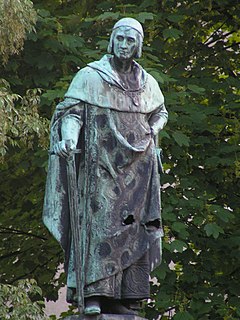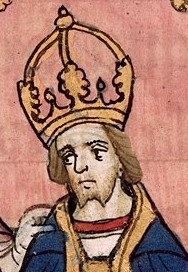 W
WBaldwin of Luxembourg was the Archbishop-Elector of Trier and Archchancellor of Burgundy from 1307 to his death. From 1328 to 1336, he was the diocesan administrator of the archdiocese of Mainz and from 1331 to 1337 of those of Worms and Speyer. He was one of the most important German prelates of his age.
 W
WBonne of Luxemburg or Jutta of Luxemburg, was born Jutta (Judith), the second daughter of John the Blind, king of Bohemia, and his first wife, Elisabeth of Bohemia. She was the first wife of King John II of France; however, as she died a year prior to his accession, she was never a French queen. Jutta was referred to in French historiography as Bonne de Luxembourg. She was a member of the House of Luxembourg. Among her children were Charles V of France, Philip II, Duke of Burgundy, and Joan, Queen of Navarre.
 W
WCharles IV, born Wenceslaus, was the first King of Bohemia to become Holy Roman Emperor. He was a member of the House of Luxembourg from his father's side and the Czech House of Přemyslid from his mother's side; he emphasized the latter due to his lifelong affinity for the Czech side of his inheritance, and also because his direct ancestors in the Přemyslid line included two saints.
 W
WHenry VII was the King of Germany from 1308 and Holy Roman Emperor from 1312. He was the first emperor of the House of Luxembourg. During his brief career he reinvigorated the imperial cause in Italy, which was racked with the partisan struggles between the divided Guelf and Ghibelline factions, and inspired the praise of Dino Compagni and Dante Alighieri. He was the first emperor since the death of Frederick II in 1250, ending the Great Interregnum of the Holy Roman Empire; however, his premature death threatened to undo his life's work. His son, John of Bohemia, failed to be elected as his successor, and there was briefly another anti-king, Frederick the Fair contesting the rule of Louis IV.
 W
WJohn the Blind was the count of Luxembourg from 1313 and king of Bohemia from 1310 and titular king of Poland. He is well known for having died while fighting in the Battle of Crécy at age 50, after having been blind for a decade.
 W
WMarie of Luxembourg, was by birth member of the House of Luxembourg and by marriage Queen of France and Navarre.
 W
WSigismund of Luxembourg was prince-elector of Brandenburg from 1378 until 1388 and from 1411 until 1415, king of Hungary and Croatia from 1387, king of Germany from 1411, king of Bohemia from 1419, king of Italy from 1431, and Holy Roman Emperor from 1433 until 1437, and the last male member of the House of Luxembourg.
 W
WWenceslaus IV was king of Bohemia from 1363 until his death, as well as king of Germany from 1376 until he was deposed in 1400. He belonged to the House of Luxembourg.